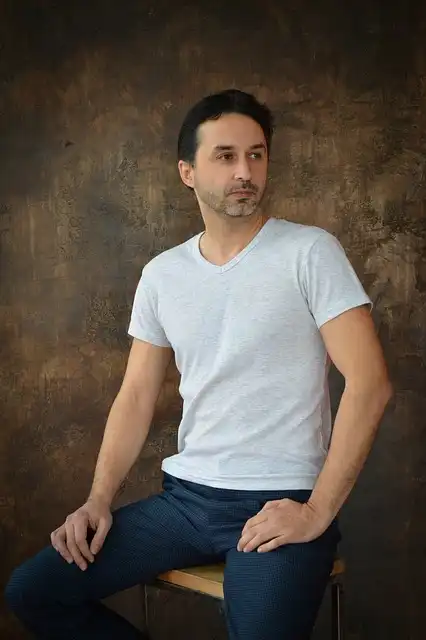Students not planning to vote cite dislike of candidates

Just over 1,000 college students across the United States responded to the Inside Higher Ed and Generation Lab survey, which has a margin of error of plus or minus 3.1 percent.
About 28 percent of respondents selected “other” when asked why they do not plan to elect, with some defining they are not a resident or are also young to vote. Others repeated dislike of the current political system or a sense that ballot was fruitless.
“I don’t care who wins, and I don’t believe it’ll make much of a distinction anyhow,” among the respondents wrote, while one more said that the political election amounts to “choosing lesser evils and enduring two parties that appear to never get anything good done.”
Simply over 1,000 college students throughout the United States reacted to the Inside Greater Ed and Generation Lab study, which has a margin of error of plus or minus 3.1 percent. Ninety-eight trainees stated they weren’t intending to elect while 15 percent stated they were uncertain.
It’s absolutely a severe underestimation of how many pupils will actually pass up casting a ballot this year; university student voter yield in 2020 was 66 percent, a record. Of those that have made the selection not to vote this year, the majority showed that choice was linked to distrust and dislike of American national politics and the political leaders on the tally this year.
“Those are the people that no get-out-the-vote campaign is going to get to,” claimed Anil Cacodcar, chair of the Harvard Popular Opinion Project, which runs the largest poll of young Americans’ political point of views. “Seven out of 10 of them are claiming they don’t such as the candidates, and they think their vote won’t matter, and those aren’t beliefs you can alter in two weeks. Some of them are nearly as committed to not voting as some individuals are to voting for one or the various other.”
Youthful voters extensively may make the difference between a success for Harris and a 2nd Trump term, having actually played a substantial duty in choosing Joe Biden in 2020. Plus, the large majority of respondents who claimed they are not electing determined as either Independents (41 percent) or signed up with a third party (26 percent)– one more populace both Trump and Harris are working to court.
Cacodcar claimed that comprehending the viewpoints of trainees who do not plan to vote “isn’t truly something, now, a campaign would certainly want to research extensive. People that are interested in long-lasting public involvement would be interested in why people are not involving this political election.”
Students who aren’t intending to vote stated that economic climate and reproductive legal rights were some of one of the most vital issues that can impact their choice to cast a tally this autumn. That associate the general survey found.
It may be near difficult to transform the minds of trainees that are established on not voting, but when asked what steps college can require to make voting much easier, 35 percent claimed canceling course on Election Day would be helpful. The second most usual solution, however, at 26 percent, was that universities should not be encouraging trainees to elect.
Cacodcar claimed he was unsurprised to see that the leading issue– the economic climate– corresponded between all students and not just those not intending to elect. It rates as the issue of a lot of problem among youths in general according to numerouspolls, and university student, handling tuition expenses and the often-high prices of staying in an university town, frequently encounter the impact of inflation and other financial obstacles.
The only concerns on which nonvoters respected the exact same quantity as all voters were the setting (20 percent among all respondents and 22 percent amongst nonvoters) and crime (17 percent for both groups). They additionally cared somewhat a lot more regarding the Israel-Hamas battle, with 13 percent of nonvoters choosing it as a crucial concern versus just 11 percent of all student citizens.
Past research has shown that several youngsters that abstain from voting do so since they do not feel ballot is a reliable way to make change, also when they are politically involved, claimed Mindy Romero, founder and director of the Facility for Inclusive Freedom at the University of Southern The Golden State. Projects are usually ineffective at altering that assumption, as well.
Of those that have decided not to elect, 26 percent claimed they dislike the prospects and 24 percent said they are “turned off” by politics when asked why they will not cast a ballot. A smaller sized number, 16 percent, say they feel their ballot will not count, while just a tiny 4 percent claimed they felt ballot was too hard.
Only one respondent revealed that they intended to withhold their ballot to oppose the current presidential administration, regardless of the increase in young people lobbyist campaigns focused on protesting the Biden management’s handling of Israel’s war in Gaza by declining to vote for Vice President Kamala Harris.
He claimed he spoke to one Michigan trainee, for instance, that claimed he leading problem of problem was reproductive legal rights, “but she was battling to take notice of that when she was battling to place food on the table as a college student.”
Other political top priorities of nonvoting trainees vary somewhat from the general pupil population. Perhaps unsurprisingly, a little over one in five nonvoters claimed they appreciate none of the concerns, which are provided in the graph listed below, or do not respect politics.
Yet nonvoters were much less most likely than their peers to say they care about the future of democracy (by a distinction of 17 portion points), racial justice and civil rights (a difference of 10 percentage factors) and LGBTQIA+ problems (a difference of 10 percent factors).
1 Harvard Public Opinion2 n’t
3 percent
4 Public Opinion Project
5 vote
« Walden University’s $28.5M class-action settlement with students gets court approvalSkilled trades gain traction with Gen Z, report finds »
